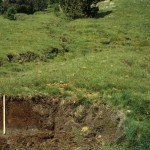
Source: Can nature help reduce the impacts of climate change? — EEA Building and managing a well-planned network of natural areas might provide an effective and, in many cases, cheaper solution for coping with natural disasters such as floods or landslides. Read More …








 Aragonese
Aragonese English
English Spanish
Spanish